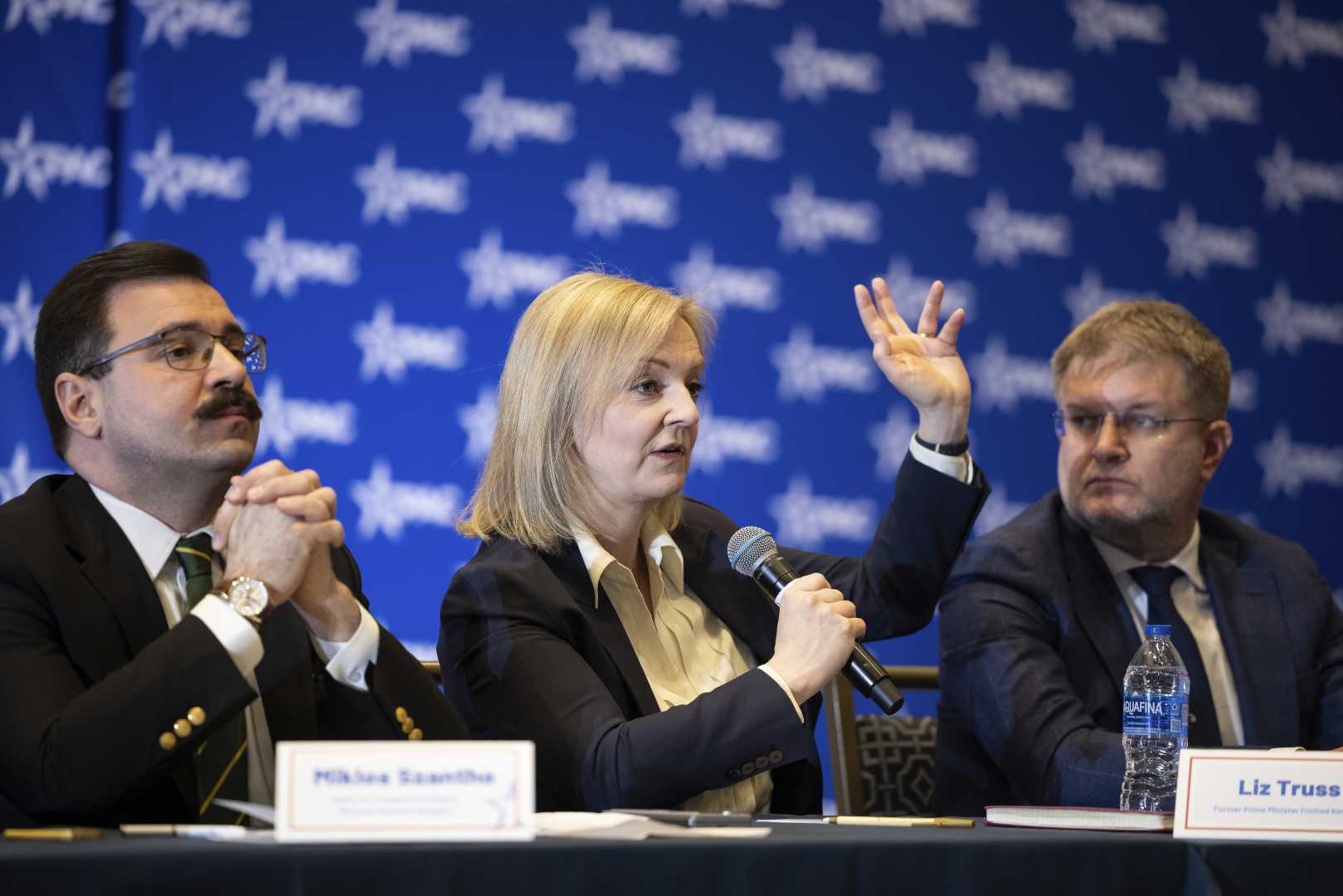Politics
Farage’s Talks with Truss Spark Debate on Reform UK’s Future

LONDON, England — Nigel Farage, former leader of the UK Independence Party, has engaged in discussions with Liz Truss regarding strategies for tackling institutional opposition in British politics, according to a report from The Times.
Farage, who has recently gained traction among voters disillusioned with mainstream parties, particularly on immigration issues, appears to be positioning his Reform UK party as a viable alternative in the lead-up to the next general election. His outreach to Truss, a former Prime Minister whose tenure was marked by economic turmoil, raises questions about the direction of Reform UK as it navigates its path to power.
“It’s not just a case of thinking about policy, it’s about working through delivery in the face of institutional resistance,” a source reportedly told The Times, highlighting the challenges ahead for Reform. Farage has set his sights on attracting disaffected Labour voters, a demographic unsettled by the current government’s perceived failure to deliver significant reforms.
At a recent rally in Newton Aycliffe — located within the constituency of the late Tony Blair — Farage refrained from criticizing trade unions in solidarity with striking workers, suggesting a strategic approach to garner support from working-class voters. These individuals previously leaned towards the Labour Party but have shown a willingness to explore alternatives.
As Reform UK seeks to solidify its stance, Labour has identified Farage’s party as a significant threat and has aggressively countered concerns that Farage intends to dismantle the National Health Service (NHS). In response, Reform has sought to reassure voters by stating that “the NHS will always be free at the point of delivery under a Reform government,” attempting to clarify its position as it faces scrutiny.
However, the past remains a significant factor in public perception. Farage’s previous comments advocating a French-style social model during last year’s election cycle complicate his party’s current messaging. While he is entitled to modify his stance, the association with any movement away from the foundational principles of the NHS could hand Labour a potent campaign issue.
The discussions with Truss, while indicative of Farage’s ambition, may also signal vulnerabilities within Reform UK, which pays the cost of drawing advice from a leader whose tenure was characterized by political and economic instability. The party currently grapples with a lack of personnel and experience, with only four MPs in parliament.
Observers have noted that Truss’s involvement might reignite accusations that Reform UK is merely reviving outdated Thatcher-era policies, potentially alienating the very voters Farage hopes to attract. Critics argue that any association with Truss could tarnish the party’s image further, given her mixed record since leaving office. Notably, Truss has positioned herself in the U.S. media landscape as a critic of what she describes as a “Deep State,” diverging from a focus on rebuilding credibility in Britain.
Meanwhile, as Reform UK ventures into discussions of a major overhaul of the state, scholars assert that learning from governance practices abroad could benefit the party. The Project 2025 in the U.S., which proposes a strategy for administrative reform, offers insights that could aid Farage in developing a coherent plan for transformative change.
Ultimately, Farage’s engagement with Liz Truss may be seen as a necessary step towards outlining a vision for the future of Reform UK, but it raises essential questions about party strategy, leadership capability, and the potential pitfalls of directors of a bygone era.












